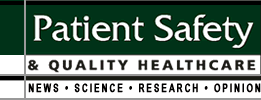 |
 |
 |

March / April 2008

AHRQ
How Patient-Centered Healthcare Can Improve Quality
By Carolyn M. Clancy, MD
Healthcare is evolving from a model in which the physician made almost all treatment decisions, unquestioned, and based on clinical experience, to a patient-centered model. Under the new but still-evolving model, patients are active participants in their own care. Increasingly, clinicians are treating patients who make decisions about healthcare services based on their own needs and preferences in addition to the advice they receive from physicians, nurses, and other care providers.
The essence of patient-centered care is captured in the maxim, "Nothing about me without me" (Delbanco, 2001). In its landmark report, Crossing the Quality Chasm, the Institute of Medicine (IOM) defined patient-centered care as "care that is respectful of and responsive to individual patient preferences, needs, and values and [ensures] that patient values guide all clinical decisions" (Institute of Medicine, 2001). IOM has identified patient-centeredness as one of the six domains that define quality care — the others being safety, timeliness, effectiveness, efficiency, and equity.
Patient-centered care has enjoyed increased attention recently. Over the past 30 years, an increasing proportion of Americans have collectively and individually demanded a greater say in decision-making and many other areas. Patients now have expanding access to information about their health and the options that are available to them. In addition, patient-centeredness is a goal of the Value-Driven Health Care Initiative, a major effort by the U.S. Department of Health and Human Services to stimulate quality improvement through more widely available information about local health providers.
Physicians' Role in Patient-Centered Care
We have a long way to go in offering patient-centered care. The Commonwealth Fund recently surveyed physicians nationally, examining practices that are commonly accepted as patient-centered, and arrived at some disturbing conclusions about the low frequency of patient-centered practices (Audet, 2006):
- Only about one-half (54%) of all physicians send reminder notices for preventive or follow-up care.

- Just over one-third (36%) of primary care physicians (PCPs) conduct patient surveys and use the data to improve their practice.

- Only 26% of PCPs have medical records and lab tests readily available.

- Less than a quarter (23%) of PCPs have electronic medical records.

- Barely one in five (21%) of PCPs "always or often" furnish patients with information on the quality of care of referral physicians.

- Only 18% of all physicians give patients the opportunity to ask questions and transmit information through e-mail.
Individually, each of these statistics would be startling. Taken together, they paint a clear picture of a healthcare system that does a poor job of placing the patient at the center of their own care. This must change. We must recognize that patients are the best source of information about their own bodies and about how they prefer to be treated. They should be active participants in decisions about their treatment.
Patients' day-to-day activities, such as diet, medications, exercise, and sleep, have a substantial impact on their health (Wu, 2000). When patients play an active role in their healthcare, they are more likely to comply with their treatment — and enjoy safer care.
AHRQ and Patient-Centered Care
Quality as we know it is an elusive concept for even sophisticated consumers. To help bridge the gap, the Agency for Healthcare Research and Quality (AHRQ) has provided tools to foster patient-centeredness and consumer participation in healthcare decisionmaking. These include:
- A page on the web site devoted to consumer information and resources. This page (http://www.ahrq.gov/browse/consbrow.htm#h1) includes links, fact sheets, materials on becoming an active healthcare consumer, and pocket guides and checklists to give patients the information they need about preventive care and other important decisions.

- The "Questions Are the Answer" campaign. AHRQ has joined with The Advertising Council to launch a national public service advertising campaign designed to encourage adults to take a more proactive role in their healthcare. The "Questions Are the Answer: Get More Involved With Your Health Care" campaign encourages all patients and caregivers to become more active in their healthcare by asking questions. The campaign includes television, radio, print, and web advertising that directs audiences to call a toll-free number (1-800-931-AHRQ) and visit a web site, www.ahrq.gov/questionsaretheanswer, to obtain tips on how to help prevent mistakes and become partners in their care. The site also features an interactive "Question Builder" that allows consumers to generate a customized list of questions for their healthcare providers that they can bring to each medical appointment.

- Tools for Health Literacy. IOM estimates that 90 million American adults — almost half of the adult population — "have difficulty understanding and acting on health information" (IOM, 2004). For some, this is a matter of basic illiteracy, the inability to read and comprehend any written material. For many others, it means difficulty in understanding the medical information you provide them verbally. For information on AHRQ's work on health literacy, visit http://www.ahrq.gov/path/hlitpath.htm. Another resource, the National Quality Forum, has developed a user's guide to assist provider's with "teach back" or "read back," a practice in which your patients tell clinicians about the care they are about to receive in their own words (National Quality Forum, 2005). Visit http://www.qualityforum.org/pdf/reports/informed_consent_guide.pdf to read the NQF report.
Patient Involvement:
New Roles Are Possible
AHRQ's work in the field of consumer engagement has been influenced by the research of Judith Hibbard, DrPH, a recognized expert, AHRQ grantee, and a member of the agency's National Advisory Council. She has observed that the predominant model of consumer involvement in healthcare has been "informed choice," where consumers are given comparative information to guide their decisions among healthcare providers and health plans (Hibbard, 2003). In the context of patient-centered care, this has been a limited role.
She also identified two other, less common roles for consumers with important implications for the quality of care they receive:
- The role of "coproducer" envisions patients acting as effective partners with providers in the care process. This role recognizes patients' expertise about their symptoms and their day-to-day involvement in decisions about their health and healthcare. Elements of the coproducer role include shared decision-making, collaborative care, and self-management.

- The role of "evaluator" includes the patient's perspective in measuring the performance of healthcare. It entails consumers evaluating access to care, gauging the quality and effectiveness of that care, and furnishing information on provider and health system performance (e.g., through patient satisfaction surveys). This role also yields information that can help educate other consumers in deciding about their own healthcare.
We know that better-informed, more assertive patients enjoy better health outcomes. We also know that patient access to personal health records and better communications with providers enable more patient-centered care. Patient health records can help consumers become more active and informed in their healthcare choices and allow their physician to focus on the patient's total health picture, rather than episodic care. However, some patients prefer not to participate in their care, and their preferences should be respected. Yet, all clinicians should strive to assure that patients have the opportunity, encouragement, and support to participate as much as possible.
Questions as Opportunities
For many patients, asking a doctor or other care providers a few questions before a medical procedure or starting a new prescription is uncomfortable and uncommon. But information is central to patient-centeredness; an informed patient is more likely to be satisfied and, perhaps more important, less likely to suffer a medical error. So, be prepared for patients with lists of questions. Be prepared to verify that a medication, treatment, or diagnostic test is correct. Treat patient inquiries not as an impediment to care but as an opportunity to enhance it. (The "Questions Are the Answer" campaign provides tools to accomplish this.)
Physicians, nurses, and other clinicians each play an important role by encouraging or discouraging a mutual exchange of information. Behavior and attitudes toward patients play a major role in determining whether the care they receive is patient-centered — and that can make the difference in how information is presented and understood.
Carolyn Clancy is director of the Agency for Healthcare Research and Quality. She is a general internist and holds an academic appointment at George Washington University School of Medicine in Washington, DC. She may be contacted at carolyn.clancy@ahrq.hhs.gov.
References
Audet, A., Davis, K., Schoenbaum, S. C. (2006). Adoption of patient-centered care practices by physicians: Results from a national survey. Archives of Internal Medicine, 166(7), 754-759.
Delbanco, T., Berwick, D. M., Boufford, J. I., et al. (2001). Healthcare in a land called PeoplePower: Nothing about me without me. Health Expect, 4(3), 44-50.
Hibbard, J. H. (2003). Engaging health care consumers to improve the quality of care. Medical Care, 41:(1 Suppl), I61 — 70.
Institute of Medicine. (2001). Crossing the Quality Chasm. Washington: National Academies Press, 2001.
Institute of Medicine. (2004). Health literacy: A prescription to end confusion. Washington: National Academies Press.
National Quality Forum. (2005). Implementing a national voluntary consensus standard for informed consent: A user's guide for healthcare professionals. Washington: Author.
Wu, S., & Green, A. (2000, October). Projection of chronic disease prevalence and cost inflation. RAND Corporation. (Prepared for the Partnership for Solutions at Johns Hopkins University).
|
 |
 |
 |


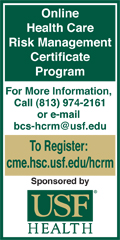



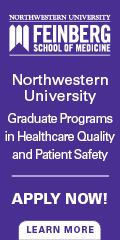

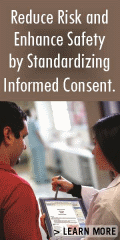

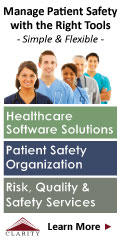

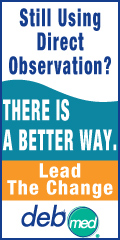





|
 |
